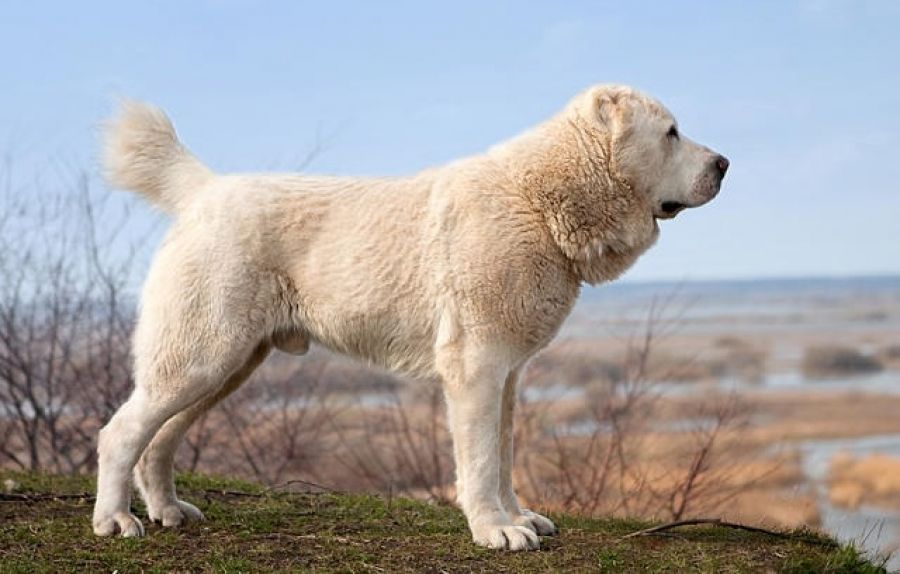Are you in search of a new furry friend to add to your family? If you are considering a Torkuz breed dog as a pet, you are in for a treat. These dogs are known for their loyalty, intelligence, and affectionate nature. Originally bred as livestock guardians in Central Asia, Torkuz dogs have a strong protective instinct and are excellent watchdogs. If you are looking for a companion who will not only be a loyal friend but also provide a sense of security, a Torkuz breed dog may be the perfect fit for you.
Breed Category: Livestock Guardian Dog
Country of Origin: Kyrgyzstan
Average Size:65-75 cm
Average Weight:45-60 kg
Average Life Span: 10-12 years
Grooming Requirements: Moderate
Exercise Requirements:High
History and Origin
The Torkuz is a traditional musical instrument that originated in Central Asia. It is a type of lute that has been played for centuries in countries such as Kazakhstan, Kyrgyzstan, and Uzbekistan. The instrument has a unique sound that is both soothing and captivating, making it a popular choice for traditional music performances. The history and origin of the Torkuz are fascinating, and they provide insight into the rich cultural heritage of Central Asia.
The Torkuz is believed to have originated in the 9th century in the region that is now modern-day Kazakhstan. It was initially used by nomadic tribes as a way to entertain themselves during long journeys. Over time, the instrument became an integral part of Central Asian culture, and it was used in various ceremonies and celebrations. The Torkuz was also used to accompany traditional folk songs and dances, and it was often played at weddings and other festive occasions.
The Torkuz is made from a variety of materials, including wood, animal skin, and horsehair. The body of the instrument is typically made from a hollowed-out piece of wood, and it is covered with animal skin. The strings are made from horsehair, and they are attached to the body of the instrument with pegs. The Torkuz is played with a plectrum, which is a small, flat tool that is used to pluck the strings.
The Torkuz has undergone several changes over the centuries, and different versions of the instrument have emerged in different regions. For example, the Kazakh Torkuz has a longer neck than the Kyrgyz Torkuz, and it is often played in a different tuning. Despite these differences, the basic design of the instrument has remained the same, and it continues to be an important part of Central Asian culture.
In addition to its cultural significance, the Torkuz has also played a role in the political history of Central Asia. During the Soviet era, the instrument was banned in some regions because it was seen as a symbol of traditional culture. However, the Torkuz continued to be played in secret, and it became a symbol of resistance against Soviet oppression. Today, the Torkuz is once again celebrated as an important part of Central Asian heritage, and it is played by musicians all over the world.
In conclusion, the Torkuz is a fascinating
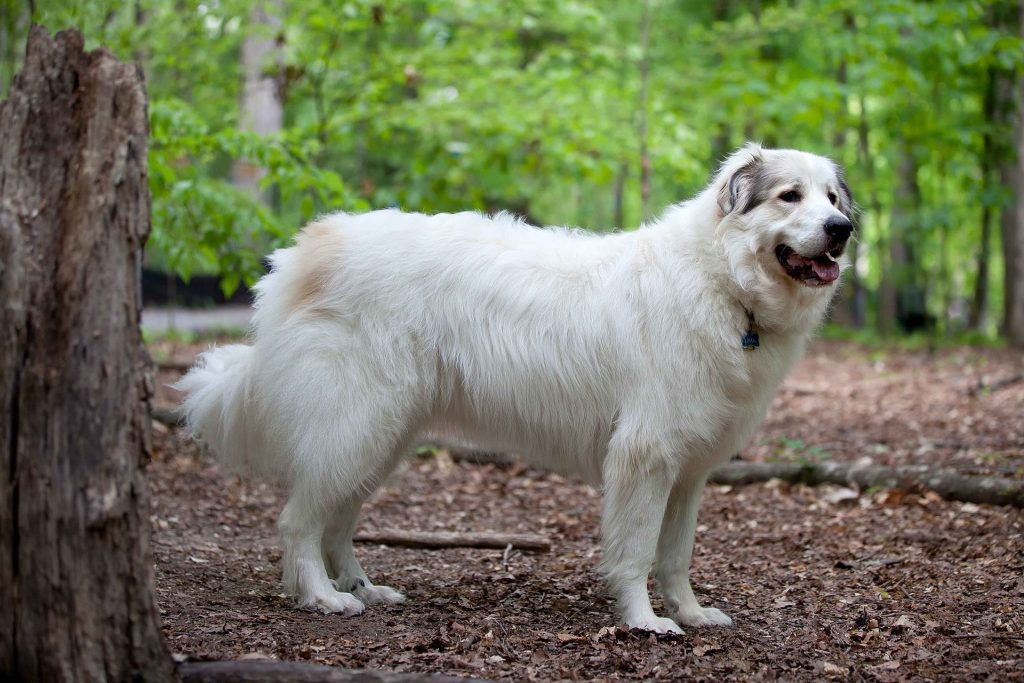
Size and Breed Category
The Torkuz is a breed of horse that originated in Turkmenistan. They are known for their distinctive appearance, which includes a long, narrow head with a convex profile, large nostrils, and a thick, flowing mane and tail. The Torkuz is a medium-sized horse, typically standing between 14 and 15 hands high at the shoulder. They are classified as a light riding horse, and are often used for racing, endurance riding, and other equestrian sports. Despite their relatively small size, Torkuz horses are known for their strength, agility, and endurance, and are highly valued by horse enthusiasts around the world.
In addition to their physical characteristics, the Torkuz is also known for their gentle and docile temperament. They are highly intelligent and responsive, making them easy to train and handle. Torkuz horses are also known for their loyalty and affection towards their owners, and are often used as family horses or for recreational riding. Despite their gentle nature, however, Torkuz horses are also known for their speed and athleticism, and are highly competitive in equestrian sports. Overall, the Torkuz is a versatile and highly valued breed of horse, prized for their beauty, strength, and intelligence.
Fur Length and Colour
The fur of the Torkuz is soft and dense, with a length that varies depending on the season. During the winter months, the fur grows longer and thicker, providing insulation against the cold weather. The fur on the back and sides of the Torkuz is a dark brown colour, while the belly and throat are a lighter shade of brown. The fur on the legs and feet is also a lighter colour, with a slightly reddish tint. The Torkuz has a distinctive white patch on its forehead, which contrasts with the darker fur on the rest of its body.
In the summer, the Torkuz sheds its winter coat, and the fur becomes shorter and lighter in colour. The brown fur on the back and sides becomes a lighter shade of brown, while the belly and throat become almost white. The reddish tint on the legs and feet is less noticeable in the summer, and the fur on the forehead remains white. The Torkuz has a thick, bushy tail, which is also covered in fur. The tail is usually the same colour as the fur on the back and sides of the Torkuz, but it may be slightly lighter or darker depending on the individual.
Termperament and Trainability
Torkuz is a breed of dog that is known for its high energy and playful temperament. They are very social animals and love to be around people and other dogs. Torkuz is also very intelligent and can be trained to do a variety of tasks. They are quick learners and respond well to positive reinforcement training methods. However, they can be stubborn at times and may require a firm hand during training. Torkuz is also known for their loyalty and protective nature towards their owners and family. They make great companions for active families who enjoy spending time outdoors.
When it comes to trainability, Torkuz is a breed that requires a lot of exercise and mental stimulation. They have a high energy level and need plenty of opportunities to run and play. Torkuz is also very intelligent and can become bored easily if not given enough mental stimulation. They respond well to positive reinforcement training methods and enjoy learning new tricks and commands. However, they can be stubborn at times and may require a firm hand during training. Torkuz is also known for their strong prey drive and may need to be trained to control their instincts around small animals. Overall, Torkuz is a highly trainable breed that requires a lot of exercise and mental stimulation to thrive.
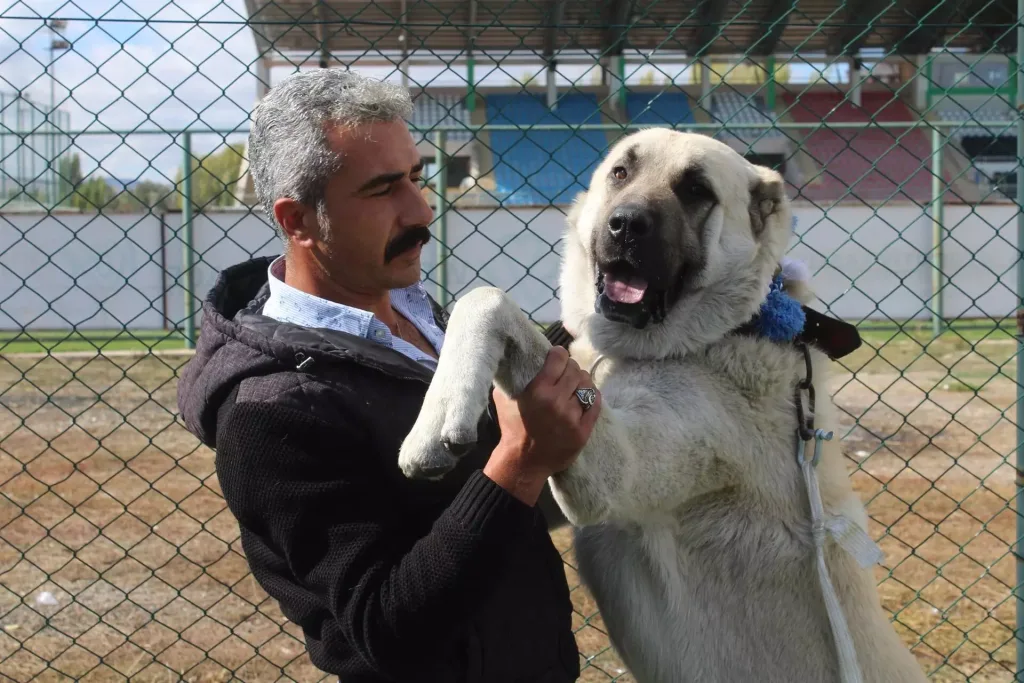
Known Health Conditions
Torkuz are known to suffer from a variety of health conditions, including respiratory issues and digestive problems. Due to their small size, they are particularly susceptible to respiratory infections, which can be life-threatening if left untreated. Torkuz owners should be vigilant for signs of respiratory distress, such as wheezing, coughing, and labored breathing, and seek veterinary care immediately if these symptoms are present. Additionally, Torkuz are prone to digestive issues, such as constipation and diarrhea, which can be caused by a variety of factors, including diet, stress, and underlying medical conditions. Owners should monitor their Torkuz’s bowel movements and seek veterinary care if they notice any changes in frequency, consistency, or color.
In addition to respiratory and digestive issues, Torkuz are also at risk for dental problems and skin conditions. Due to their small size, Torkuz have a higher risk of dental disease, such as tooth decay and gum disease, which can lead to pain, infection, and tooth loss. Owners should provide their Torkuz with regular dental care, including brushing their teeth and providing dental chews and toys. Torkuz are also prone to skin conditions, such as allergies and dermatitis, which can cause itching, redness, and hair loss. Owners should monitor their Torkuz’s skin for any signs of irritation or inflammation and seek veterinary care if necessary.
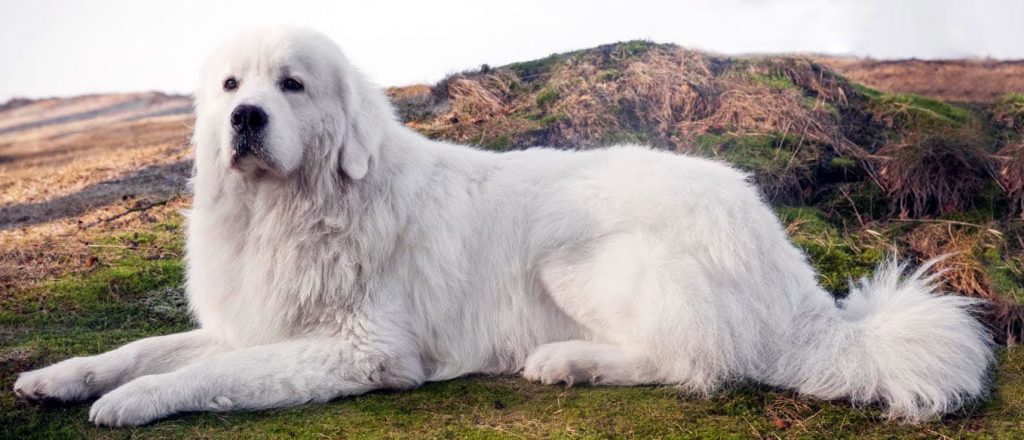
Openness to Strangers
Torkuz have a remarkable openness to strangers, which is evident in their friendly and welcoming demeanor. They are quick to approach new people and show affection, often wagging their tails and licking their hands. This trait makes them excellent companions for families with children or those who frequently have guests over. Torkuz are also known to be highly sociable with other dogs, often engaging in play and forming strong bonds with their furry friends. Their open and friendly nature makes them a popular choice for those seeking a loyal and affectionate pet.
In addition to their friendliness towards humans and other dogs, Torkuz are also known to be curious and adventurous. They enjoy exploring new environments and are not easily intimidated by unfamiliar surroundings. This trait makes them excellent companions for outdoor enthusiasts who enjoy hiking, camping, and other outdoor activities. Torkuz are also highly intelligent and trainable, making them a popular choice for those seeking a dog that can learn new tricks and commands quickly. Their adventurous spirit and intelligence make them a beloved pet for those seeking a loyal and curious companion.
Playfulness Level
The Torkuz is a highly energetic and playful canine that loves to engage in various activities. They are known for their love of play and can often be found running around and chasing after toys. Their playful nature makes them an excellent companion for families with children, as they are always up for a game of fetch or tug-of-war. The Torkuz is also a great choice for active individuals who enjoy outdoor activities such as hiking or jogging. Their playful energy and enthusiasm make them the perfect partner for any adventure.
In addition to their love of play, the Torkuz is also highly intelligent and trainable. They thrive on mental stimulation and enjoy learning new tricks and commands. This makes them an excellent choice for obedience training and agility competitions. Their playful nature and eagerness to please make them a joy to work with, and they are often quick learners. Overall, the Torkuz is a highly playful and intelligent breed that makes an excellent companion for anyone looking for a fun-loving and energetic canine companion.
Suitability as a Pet for Children
Torkuz have a friendly and affectionate nature, making them a great choice for families with children. They are highly trainable and intelligent, which means they can easily learn new tricks and commands. Torkuz are also known for their loyalty and protective instincts, which can make them excellent watchdogs. Additionally, they have a moderate energy level, which means they can adapt well to both indoor and outdoor living environments. Overall, Torkuz can make wonderful pets for families with children who are looking for a loyal and trainable companion.
Exercise Needs
Torkuz dogs require a significant amount of exercise to maintain their physical and mental health. These dogs are highly active and energetic, and they need plenty of opportunities to run, play, and explore. A daily walk is not enough for these dogs, and they require more intense activities such as running, hiking, or playing fetch. Torkuz dogs also enjoy participating in dog sports such as agility, flyball, and obedience training. Providing them with enough exercise will help prevent behavioral problems such as destructive chewing, excessive barking, and aggression.
In addition to physical exercise, Torkuz dogs also need mental stimulation to keep them happy and healthy. These dogs are intelligent and curious, and they enjoy learning new things and solving puzzles. Owners can provide mental stimulation by playing games with their dogs, teaching them new tricks, and providing them with interactive toys. Torkuz dogs also benefit from socialization with other dogs and people, which can help prevent shyness and aggression. Overall, providing Torkuz dogs with enough exercise and mental stimulation is essential for their well-being and happiness.
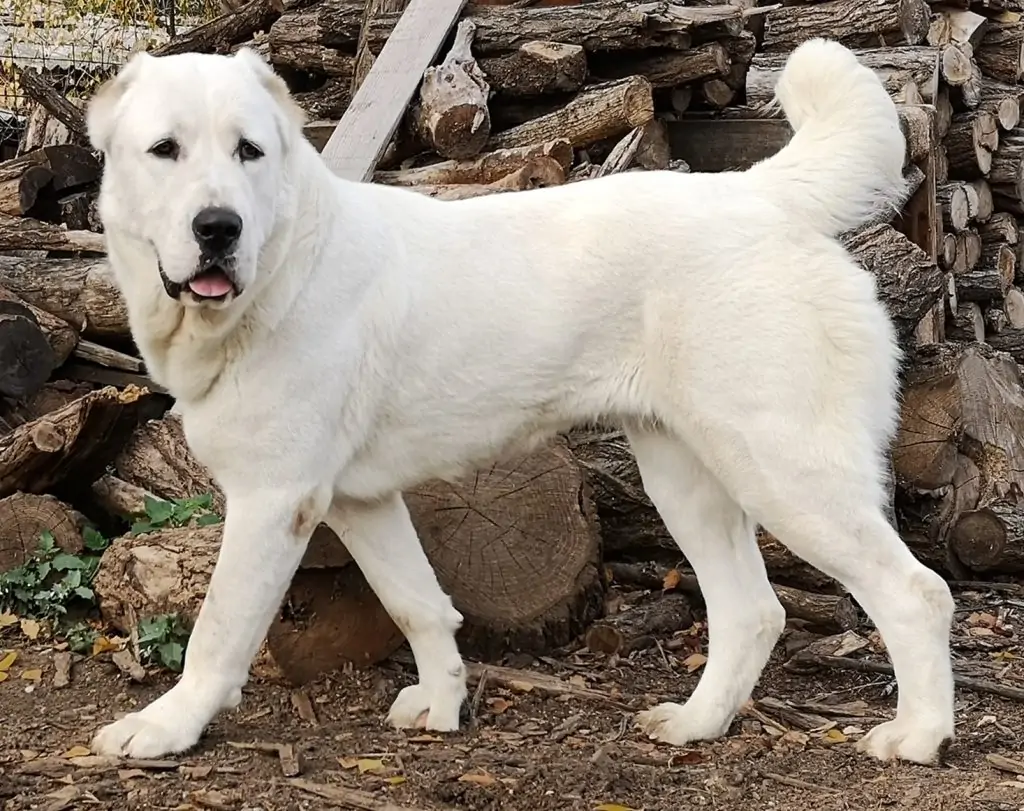
Suitability for a Multi-Pet Family
Torkuz dogs have a reputation for being friendly towards other pets. They are known to be sociable animals and enjoy the company of other animals. Torkuz dogs are often seen playing with cats, rabbits, and other small animals. They are also known to get along well with other dogs, regardless of their breed or size. Torkuz dogs are not aggressive towards other animals and are generally easy-going.
Housing Requirements
Torkuz require a living space that is at least 10 square meters in size. This space should be well-ventilated and have access to natural light. The flooring should be made of a non-slip material to prevent any accidents. Torkuz also require a comfortable sleeping area that is at least 1.5 square meters in size. This area should be warm and dry, with a soft bed or blanket for the dog to rest on. Additionally, Torkuz require access to fresh water at all times, and their food should be stored in a clean and dry area.
Torkuz require regular exercise, so their living space should have access to an outdoor area that is at least 20 square meters in size. This area should be securely fenced to prevent the dog from escaping. Torkuz also require regular grooming, so their living space should have a designated area for grooming, with a table or surface for the dog to stand on. This area should be well-lit and have access to running water. Additionally, Torkuz require regular veterinary check-ups, so their living space should be located near a veterinary clinic.
Summary
Torkuz are a popular choice for pet owners due to their friendly and loyal nature. They are known for their intelligence and adaptability, making them easy to train and integrate into a household. Torkuz are also low maintenance, requiring minimal grooming and exercise. They are a great choice for families with children or those living in smaller homes or apartments. Overall, Torkuz make excellent pets for those seeking a loving and loyal companion.
Torkuz Dog FAQS
Torkuz dogs are intelligent and trainable, but can be stubborn at times. Consistent training and positive reinforcement is recommended.
Yes, Torkuz dogs are protective of their family and make good guard dogs.
Yes, Torkuz dogs are known to be good with children and make great family pets.
Torkuz dogs are generally healthy, but can be prone to hip dysplasia and eye problems. Regular vet check-ups are recommended.
Yes, Torkuz dogs have a thick coat and require regular brushing and grooming to prevent matting and tangling.
Yes, Torkuz dogs have a thick coat and shed moderately throughout the year.
Torkuz dogs are active and require at least 1-2 hours of exercise daily.
A Torkuz dog can grow up to 70-80 cm in height.
The average weight of a Torkuz dog is between 25-35 kg.
The average lifespan of a Torkuz dog is 10-12 years.
